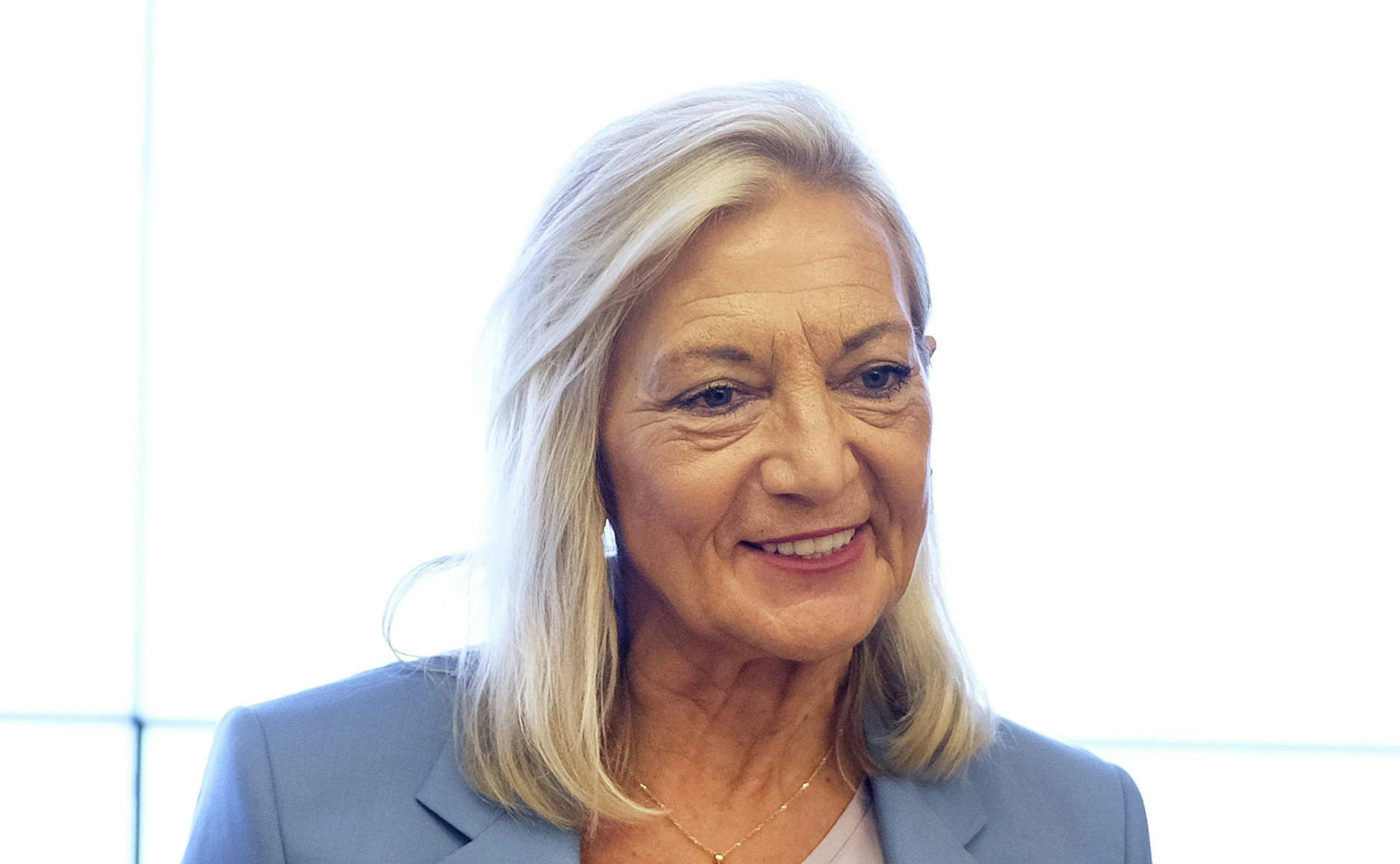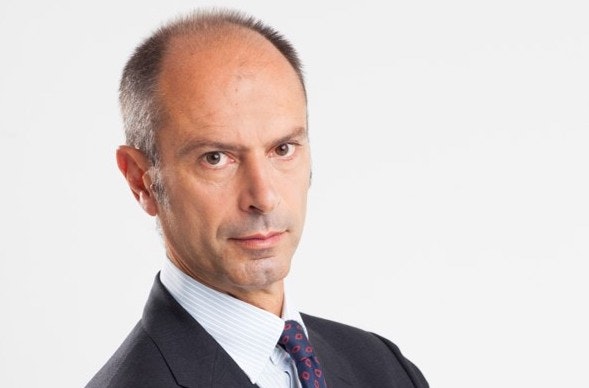Venture capital investment into European startups is slowing down.
VCs are still making investments — and telling everyone who will listen on Twitter that this is the case — but fewer, and for less capital, than before. Funding rounds in Europe dropped by 22% in March, according to Dealroom, and valuations are down by 10-40%.
But what’s going on with the somewhat less vocal angel investors? Have they closed their cheque books — or are they seizing the opportunity to get in on some good deals?
“We’ve seen some decrease in investing, but it has not been terrible,” says Luigi Amati, president of Business Angels Europe, which represents more than 40,000 angels across Europe. Some angels, like VCs, are focusing on helping out existing their portfolio rather than looking for new investments; some ‘tourist’ angels have disappeared; but many more are actively investing.
It matters where angels are based: startup and investor support measures vary between countries, with some more angel-friendly than others. As a result, some angel groups are as active as they were before the crisis, and seeing increased deal flow even as others — notably in the UK — have seen many angels fly the nest.
It’s looking pretty good
The sounds from angels across Europe are mostly positive.
“We do not see any alteration in the level of activity in our angel group,” says Claire Munck, chief executive of Belgian business angels group Be Angels, which has 330 members.
“We believe that the motivation of business angels — investing and supporting startups — is really important now. Business angels want to support their portfolio and new startups.”
Angels, unlike VC investors, don’t have other investors (LPs) to report to. They also often invest in startups before they’ve launched, and work to very long time horizons. This makes the current turmoil less of a factor for many of them.
They believe that new innovation will emerge — and possibly at better valuations.
“They also believe that new innovation will emerge — and possibly at better valuations,” adds Munck; a welcome change after some ‘pricey’ years.
Deepali Nangia, a UK-based angel investor, agrees that angels feel like there are good deals to be had at the moment: “They feel that they can back quality founders at decent market valuations (some reductions depending on stage) and they have not suffered the same amount of loss as expected since the public markets seem to be doing quite well (an anomaly in itself).”
“I have not seen any data yet, but based on my conversations, professional angels are not slowing down,” says Neil Murray, founder of early-stage fund The Nordic Web.
“I am still looking (and attempting to make) deals and the people I typically co-invest with are also doing so. While there may be minor alterations on strategy (for example, a change in cheque size or change in the size of the rounds you participate in), nearly every professional angel I know is still actively looking to invest in new deals.”

Dastardly data
Data on angel activity is still thin, although some reports are starting to be published.
A survey carried out with UK angel investors, Activate Our Angels, found that 67% of angels are still investing (although 16% are only investing in their existing portfolio). However, 51% plan to invest less than in 2019, 36% said they were writing smaller cheques and 68% said they had reduced valuations as a result of Covid-19.
Professional angels are not slowing down.
Another survey, carried out by UK-based angel syndicate Angel Academe, found that 72% of angels were still open to investing, albeit “cautiously”. Meanwhile research from RLC Ventures, an early-stage fund in the UK, found that a third of angels surveyed planned to do fewer deals over the next year, while a third planned to do more.
Christopher Lowe, founder of NOTWICS, a UK-based investor consultancy, is seeing a slightly less rosy picture. He says the angel investors in his network have split into three camps: 50% have disappeared, 25% are sitting on the sidelines and just 25% are actively investing and supporting their portfolios.
The trends appearing
So, in the absence of much data, Sifted contacted dozens of angels based across Europe to find out how things are looking from their perspectives. Several trends are appearing.
Deals are still closing
“90% of deals closing right now are rounds that started raising in January or earlier, and bridges of existing portfolio companies,” says Philipp Moehring, a seed investor and head of AngelList in Europe. “Real new post-corona deals are in the making now, and they are definitely getting done.”
It helps that many of the startups angels invest in are pre-launch, and therefore more cushioned from what’s going on in the wider economy. “Angels invest quite early on and are looking at most sectors that they would normally look at — many angel funded companies are pre-seed/seed and therefore are 12-18 months away from market,” says Nangia.

It’s harder to source deals — but it might be easier for founders to get hold of angels
Finding new deals is proving trickier for some, however.
“It is harder to source deals — the meetups and demo days have moved virtual (to the extent they are maintained) so sourcing is constrained. So, more deals are just the in-bound spontaneous decks sent to our website,” says Elizabeth Pauchet, a Paris-based angel investor and a member of the Femmes Business Angels network.
Investors should hopefully have more time to talk to founders on Zoom.
“There is less physical networking but I think investors should hopefully have more time to talk to founders on Zoom,” says Nangia. “I personally talk to so many more founders on Zoom than I could physically do when I was in the office.”
Investment opportunities are mixed
“We have noticed a decrease in the number of investment opportunities,” says Alain Bommelaer at France Angels. “Some entrepreneurs, expecting a downward pressure on values, seem reluctant to proceed in unchartered waters. This results in a slowdown in deal flow.”
Not all angel groups are finding this, however. Be Angels in Belgium has seen increased deal flow. “We are getting quite a lot of visibility in the media as a financial actor still active on the market in seed (versus funds which will probably focus on their existing portfolio),” says Munck.

It’s getting harder to pull deals together
With some angel investors dropping out of the picture, it is more difficult to marshal enough angels to complete funding rounds.
“The capacity to mobilise more investors around you is just not there. Unless you can leverage more new angel capital, and incentivise more people to support small businesses, the existing number of angel-backed businesses won’t all be able to survive,” says Jenny Tooth, chief executive of the UK Business Angels Association (UKBAA) and vice-president of Business Angels Europe.
The ‘tourists’ have gone on holiday
Many of the occasional angel investors have disappeared — but not everyone minds.
“Where I think we will/have seen a slowdown of angel investment, is the classic ‘rich individual’ who sometimes dabbles in investing in tech startups. But to be completely blunt, I'm not sure that this isn't a good thing anyway…” says Murray from the Nordic Web.
Angels that were busy and writing larger cheques before are still doing so.
“Anecdotally, angels that were busy and writing larger cheques before are still doing so. ‘Tourists’ like family offices, non-tech angels and smaller cheques are fading out or focusing on their existing portfolio (which also means keeping dry powder),” says Moehring at AngelList.
Many angels are spending time (and money) supporting their existing portfolio
Some angels are not making new investments to ensure they can support startups they have already funded.
“Quite a lot of angel groups have been doing what any small VC or seed fund is doing — focusing on their portfolio, triaging those they can give the most help to,” says Tooth.
“Lead angels are really rolling their sleeves up,” she adds. “They’re giving a lot of strategic help to businesses, trying to help with funding to keep portfolio businesses moving, and trying to give them a longer runway.”
There's only so much some angels can do, however. “Most angels are doing this alongside a day job, many putting money aside out of personal wealth — and using up spare capital to keep several of their portfolio businesses going. Many of them are coming to a difficult point where they can’t do that much more,” Tooth adds.
“Right when lockdown happened, many angels said to me that they would not be investing because a) their own portfolios were in trouble/some might go under b) they were worried about public market losses and c) cash is king in times of uncertainty,” says Nangia.

The angels who haven’t vanished are spending more time looking at investments
Business angel clubs are reporting higher than usual attendance at pitch events, now that they’re taking place online.
We see angels flocking to online matchmaking.
“We see angels flocking to online matchmaking. During our cross-border e-pitch we had 110 investors from across Europe coming in,” says Amati of Business Angels Europe.
“Paradoxically, members are more available. We’ve had two monthly meetings now where startups pitch via Zoom, and attendance is significantly higher than in the usual pitch plus cocktail format,” says Pauchet.
“We witness quite some enthusiasm for our monthly startup pitches, which we organise online for the moment,” says Munck at Be Angels. “We have much more participation than at our physical events.”
Angels are also moving quickly, in some cases. “Due diligence and deal execution are quicker; many people have been able to carve out more time to focus on their business angel activity (which is a side interest for the vast majority of our network’s members),” says Pauchet.
Startups from certain sectors are getting the limelight
Healthcare and remote working startups are, predictably, getting the lion’s share of angels’ attention.
“If you look at the pitches on the online crowdfunding platforms, I do think you are seeing more in digital health etc.” says Nangia.
“There’s possibly higher interest for projects that are really ‘must have’ and make a difference rather than ‘nice to have’,” says Munck at Be Angels.
“Projects linked to events marketing or tourism have faded from the radar screens of the investors, while any startup related to health (such as machine learning for clinical studies) gets a very special attention,” says Bommelaer at France Angels. “We see that e-commerce, click-and-collect, alternative delivery and distribution circuits, teleworking and more generally tech projects seem favoured over others.”

The longer-term
Think of the VCs
In the UK, calls are mounting for the government to offer some form of stimulus or support package to angel investors. Its £1bn startup support package looks to be incompatible with the Enterprise Investment Scheme (EIS) and Seed Enterprise Investment Scheme (SEIS) used by many angel investors, and the worry is that without the significant tax breaks these schemes offer angels will not be investing.
If angel investment dramatically tails off, it will have long-term impacts on the startup sector as a whole.
If angel investments were to slow down, it would have a massive impact on the startup economy in Europe.
“If angel investments were to slow down, it would have a massive impact on the startup economy in Europe. Indeed, if angel investing breaks down, you break down the whole pipeline of development,” says Amati of Business Angels Europe.
“If it only decreases in 2020, this is a relatively short period, without a long tail. When this is a longer period of disruption, we might see a problem.”
“Angels are where VCs find deals,” adds Tooth from UKBAA. Unless the angel ecosystem (which currently invests £1.5bn each year in the UK) receives a boost, “we will have a massive hole in the ecosystem going forward”.
“The long-term pain in the UK will only be avoided if the UK government acts fast [later this year] to bring the angels back, with a taxation based stimulus package, that encourages them to get back to what they do best,” says Lowe from NOTWICS. “If we don't, our digital leadership could become toast — very quickly indeed."
Continental angels
Some government are stepping up to support the angel investment ecosystem.
Last week, the Italian government announced a new €500m package to support startups and business angels.
As part of the package, tax relief on investments of up to €2.5m per year will be doubled — from 30% to 60% in 2020 and 2021. The government is also launching a €200m co-investment fund, to invest public money alongside professional investors. It will write cheques of up to €1m, and for no more than 15% of a funding round, via a ‘SAFE’ (simple agreement for equity, similar to advance subscription agreements in the UK).
In Portugal, the government announced a €200m co-investment fund and another co-investment fund for social innovation, as part of a package of measures to support startups. These funds can be “leveraged by business angels to increase their fire power,” says João Trigo da Roza, president of the Portuguese Business Angels Association.
In France, angels are eligible to co-invest alongside state bank BPIFrance and VCs as part of the €80m French Tech Bridge convertible note programme.
However, France Angels, the French federation of Business Angels, wants the government to do more. It’s advocating for an EIS scheme, similar to that in the UK, that would “boost the investment efforts of private investors” by allowing a 30% income tax deduction for equity investment in eligible companies, deduction of capital losses on such investments and tax-free rollover of capital gains subject to reinvestment of the proceeds in other eligible companies.
Belgian angel investors are also lobbying their government to expand an existing fiscal incentive to invest in startups, the ‘Tax Shelter for Startups’, which enables private individuals or crowdfunders to deduct from tax 45% of what they invest (up to €100,000 per year).
The details around a German scheme to support startups not financed by VCs are still being worked out — and BAND, the Business Angels Netzwerk Deutschland, is pushing for greater involvement. The money will be allocated to startups by federal states, and BAND says that getting angels onboard would have benefits for both — “to avoid over-stretching the staff capacities of the promotional institutions in the federal states” and “in terms of due diligence and company valuation, but also in the subsequent administration of the investment or convertible loan”.
Amati at Business Angels Europe is hopeful that countries with less friendly schemes for angel investors will step up to emulate the examples set by their neighbours, resulting in a “snowball effect” of measures across the continent.
He also thinks the time is ripe for a pan-European response: “Do we bring together Europe by implementing Europe-wide solutions to support investments in startups? Are we going to work together for the recapitalisation?”



